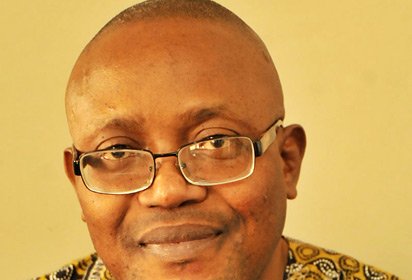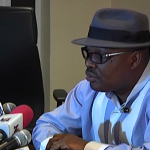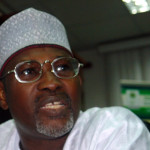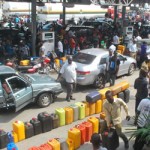OPINION: Democracy is When They Win, By Owei Lakemfa
Articles/Opinion, Featured Contributors/Columnists, Latest Headlines Friday, September 9th, 2016
BALTIMORE, MD (AFRICAN EXAMINER) – The crowds on the streets of the Venezuelan capital, Caracas on September 1 seeking the ouster of President Nicholas Maduro were impressive. They stretched as long as the eyes could see. Also impressive were the crowds insisting Maduro serves out his mandate.
The tactics of turning out crowds on the streets to lay the basis for ousting popularly elected leaders with social conscience is an old one. It was effectively used two weeks ago in Brazil when the Senate on Wednesday August 31, 2016 ousted President Dilma Roussef. Her ‘crimes’ include rejecting market forces in favour of pro-poor policies which include cash grants to poor families and providing massive social security from healthcare to public housing. Additionally, she is ‘guilty’ of trying to build a New World Economic Order by championing the Brazil, Russia, India, China and South Africa (BRICS) coalition.
Since her electoral victory with 54,501,119 votes at the general elections in 2014, was indisputable, the plan was to accuse her government of corruption and being responsible for economic problems occasioned by the fall in oil and commodity prices. With this massive propaganda, they unleashed the impressionable street crowds on March 15, April 12 and August 16, 2015 and finally in March and May 2016. Then this May, the Representatives suspend her; not for the imaginary charges of corruption that were used to lure protesters into the streets, but on the dubious claim that the budgetary figures she presented were manipulated.
While the merchants of market forces, their drivers in Western Europe and America, and their local representatives got away with the coup in Brazil, they failed in Bolivia.
Eva Morales was a young coca farmer in Bolivia who argued that coca should not be criminalized because Americans abuse it by refining it into cocaine. He was detained several times for this and his environmental and pro-poor campaigns. He won Presidential elections and was on January 22, 2006, inaugurated the 80th President of Bolivia and the first indigenous Indian to occupy the Presidency in a country they constitute 62 percent of the populace. The elites were unwilling to accept the ballot box verdict. To worsen matters for them, the Morales administration began pro-poor reforms including land reforms and redistribution of the country’s gas wealth. He also began to reduce the power of transnational corporations. Within two years, the elites made a gambit by forcing a referendum to recall Morales, but failed. Then they began street protests and seizing parts of the country like Santa Cruz, Pando, Tarija and Beni in an attempt to secede.
Morales declared a state of emergency in parts of the country, moved in the Army and most importantly, mobilized the farmers and the poor to march on the cities and seize them from the anti-democratic forces.
The elites leader, Leopoldo Fernandez was arrested and charged with genocide following the murder of thirty persons during the counter protests. Morales expelled the American ambassador for allegedly being a planner of the uprising and late Hugo Chavez of Venezuela did the same in solidarity by sending home the American ambassador. Ecuadorean President Rafael Correa also threatened to do the same while Nicaraguan President Daniel Ortega and his Honduran counterpart, Manuel Zelaya pledged support to the elected Bolivian government. In the face of this fight back, the anti-democratic forces took the European Union advice of holding talks to end their rebellion. Today, eight years later, the Morales administration remains in power.
The same tactics of street protests to subvert democracy was used in Chile with tragic consequences. Salvador Allende, a physician won elections and was sworn in on November 3, 1970. He nationalized the major industries in the country transferring economic power from foreign companies to Chileans. He also introduced pro-poor reforms and farm collectivization. The American Central Intelligence Agency (CIA) decided to overthrow the democratic government. It bribed some organisations to organize street protests; these included women banging cooking spoons and pots. It also bribed the top echelon of the army to carry out a follow-up coup. When General Jean-Rene Bachelet was considered a formidable pro-democracy officer who will not play ball, he was assassinated.
On September 11, 1973, generals led by a human butcher, Augusto Pinochet staged the coup which bombed the Presidential Palace, but president Allende refused to surrender the sacred mandate of the people; rather he chose to die, rifle in hand. Thus, four decades of democratic governance was replaced by two decades of brutal dictatorship in which tens of thousands of Chileans were murdered by one of the most barbarous regimes in human history.
While the Brazilian elites could not tolerate Dilma Rousseff, a former guerrilla fighter and a woman nor the Bolivian elites accept Evo Morales a coca farmer and indigenous Indian, their Venezuelan counterparts cannot come to terms that the masses voted for Nicolas Maduro a former bus driver. Maduro has refused to reverse the massive social programmes of his predecessor, Hugo Chavez which has seen public homes built for one million Venezuelans, or peacefully hand over the enormous oil wealth of the country back to transnational corporations. Also like Chavez, he insists on Venezuela selling only refined petroleum products rather than crude oil like other underdeveloped countries.
Although he won the 2012 elections which had a 79.68 percent voter turnout, the elites have never recognized his Presidency. The defeated opposition candidate, Henrique Capriles actually challenged the results. This led to a recount of 54 percent of the votes which tallied with the earlier results released. Caprile insisted on the recount of the balance 46 percent which Maduro accepted. But Caprile changed his mind and rather went to the Supreme Court which upheld the results.
Despite this, the opposition refused to recognize the country’s President and tried to reduce his tenure from six to four years, but failed. Then they began street protests. The most serious was in 2014 when 43 people were killed. Now, taking advantage of falling oil prices, inflation and an undeclared international economic war against the Maduro government, the anti-democratic forces decided on the new protests demanding a recall referendum. They need to heat up the system to ensure the recall by January 10, 2017 because the Venezuelan constitution provides for the Vice President to take over if a recalled President has less than two years left in office.
But recalling Maduro is a tall order; the opposition claims it has 1.85 million signatures calling for a referendum; figures government say are fraudulent. Four million signatures are required for a recall referendum while a minimum 7,587,580 votes are needed for the recall. This is because the number of recall votes must be higher than those that elected the President. We need a world where electoral mandates are not subverted.
Related Posts
Short URL: https://www.africanexaminer.com/?p=35505






















